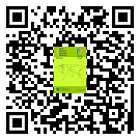The effective of Cognitive Behavioral Therapy on Internet addiction among university students. A systematic review
(1) Department of Epidemiology, School of Public Health, Cheeloo College of Medicine, Shandong University, Jinan, Shandong, China
(2) Universitas Muhammadiyah Semarang, Indonesia
(3) Faculty of Medicine, University of Benghazi, Libya
(4) Ali Alrewiei psychiatric center, Benghazi, Libya
(5) Radiology Department, College of Medical Technology, Benghazi. Libya
(6) Infection Control Department, Elmarj Teaching Hospital. Libya
(*) Corresponding Author
Abstract
Keywords
Full Text:
PDFReferences
Diomidous, M., et al., Social and Psychological Effects of the Internet Use. Acta Inform Med, 2016. 24(1): p. 66-8.
Romero-López, M., et al., Problematic Internet Use among University Students and Its Relationship with Social Skills. Brain Sci, 2021. 11(10).
Nakao, M., K. Shirotsuki, and N. Sugaya, Cognitive-behavioral therapy for management of mental health and stress-related disorders: Recent advances in techniques and technologies. Biopsychosoc Med, 2021. 15(1): p. 16.
Young, K.S., Treatment outcomes using CBT-IA with Internet-addicted patients. J Behav Addict, 2013. 2(4): p. 209-15.
Zhang, J., Y. Zhang, and F. Xu, Does cognitive-behavioral therapy reduce internet addiction? Protocol for a systematic review and meta-analysis. Medicine, 2019. 98: p. e17283.
Babiano-Espinosa, L., et al., Acceptability, feasibility, and efficacy of Internet cognitive behavioral therapy (iCBT) for pediatric obsessive-compulsive disorder: a systematic review. Systematic Reviews, 2019. 8(1): p. 284.
Ding, K. and H. Li, Digital Addiction Intervention for Children and Adolescents: A Scoping Review. Int J Environ Res Public Health, 2023. 20(6).
Sterne, J.A.C., et al., RoB 2: a revised tool for assessing risk of bias in randomised trials. Bmj, 2019. 366: p. l4898.
Sterne, J.A., et al., ROBINS-I: a tool for assessing risk of bias in non-randomised studies of interventions. Bmj, 2016. 355: p. i4919.
Page, M.J., et al., The PRISMA 2020 statement: an updated guideline for reporting systematic reviews. BMJ, 2021. 372: p. n71.
Hamu, H. A., Yusuf, A., Sufyanti, Y. A., Margono, H. M., PD., Triana., Fauzi, A. The Effect of Cognitive Commitment of Behavioral Therapy on Internet Addiction among Adolescents in Kupang City. International Journal of Nursing and Health Services (IJHNS), 2020. 3(1).
Zeidi, I. M., Divsalar, S., Morshedi, H., Alizadeh, H. The effectiveness of group cognitive-behavioral therapy on general self-efficacy, self-control, and internet addiction prevalence among medical university students. Social Health and Behavior, 2020. 3. 93. 10.4103/SHB.SHB_20_20.
Ksiksou, J., Lhoussaine, M., Alaoui, S. Effects of Cognitive-Behavioral Group Therapy on the Management of Internet Addiction, Depression, Anxiety, and Stress Among Nursing Students in Morocco. Iranian Journal of Psychiatry and Behavioral Sciences, 2023.10.5812/ijpbs-136425.
Lan, Y., Ding, J. E., Li, W., Li, J., Zhang, Y., Liu, M., & Fu, H.. A pilot study of a group mindfulness-based cognitive-behavioral intervention for smartphone addiction among university students. Journal of behavioral addictions, 2018. 7(4), p. 1171–1176. https://doi.org/10.1556/2006.7.2018.103
Ede, M. O., Okeke, C. I., Igbo, J. N., & Aye, E. Testing the efficacy of group cognitive-behavioral therapy for pathological internet use among undergraduates in Nigeria. Trends in Psychiatry and Psychotherapy, 2023. 45. https://doi.org/10.47626/2237-6089-2021-0348
Affouneh, S., Mahamid, F. A., Berte, D. Z., Shaqour, A. Z., & Shayeb, M. The efficacy of a training program for social skills in reducing addictive Internet behaviors among Palestinian university students. Psicologia: Reflexão e CríTica, 2021. 34(1), 1-9. https://doi.org/10.1186/s41155-021-00185-w
Yang, W., Hu, W., Morita, N., Ogai, Y., Saito, T., & Wei, Y. (2022). Impact of Short-Term Intensive-Type Cognitive Behavioral Therapy Intervention on Internet Addiction among Chinese College Students: A Randomized Controlled Trial. International Journal of Environmental Research and Public Health, 19(9), 5212. https://doi.org/10.3390/ijerph19095212
Alavi, S. S., Ghanizadeh, M., Mohammadi, M. R., Jannatifard, F., Alamuti, S. E., & Farahani, M. The effects of cognitive-behavioral group therapy for reducing symptoms of internet addiction disorder and promoting quality of life and mental health. Trends in Psychiatry and Psychotherapy, 2020. 43(1), p. 47-56. https://doi.org/10.47626/2237-6089-2020-0010
Atoum A, Al- Hattab L. Internet addiction and its relation to psychosocial adaptation among Jordanian high basic stage students. Journal of Psychology and Behavioral Science, 2015. 3, p. 96-104.
Wang Y, Anise MS, AMS W, Lau JTF. The health belief model and number of peers with Internet addiction as interrelated factors of Internet addiction among secondary school students in Hong Kong. BMC Public Health, 2016.16, p.272.
CST W, Wong HT, KF Y, et al. Parenting approaches, family functionality, and Internet addiction among Hong Kong adolescents. BMC Pediatrics, 2016.16, p.130.
Malak MZ, Khalifeh AH, Shuhaiber AH. Prevalence of Internet addiction and associated risk factors in Jordanian school students. Computers in Human Behavior, 2017.70, p.556-563.
Moreno MA, Jelenchick L, Cox E, et al. Problematic Internet use among US youth: A systematic review. Archives of Pediatrics & Adolescent Medicine, 2011.165,797-805.
Durkee T, Kaess M, Carli V, et al. Prevalence of pathological Internet use among adolescents in Europe: Demographic and social factors. Addiction, 2012. 107(12), p.2210-2222.
Demetrovics Z, Szeredi B, Rozsa S. The three-factor model of Internet addiction: The development of the problematic Internet use questionnaire. Behavior Research Methods, 2008. 40(2), p.563-574.
Siomos K, Floros G, Fisoun V, et al. Evolution of Internet addiction in Greek adolescent students over a two-year period: The impact of parental bonding. European Child & Adolescent Psychiatry, 2012. 21(4), p.211-219.
Ko CH, Yen JY, Yen CF, Lin HC, Yang MJ. Factors predictive for incidence and remission of Internet addiction in young adolescents: A prospective study. Cyber Psychology & Behavior, 2017. 10(4), p.545-551.
Chen SH, Weng LC, Su YJ, Wu HM, Yang PF. Development of Chinese Internet addiction scale and its psychometric study. Chinese Journal of Psychology. 2003;45:279-294.
Canbaz S, Sunter AT, Peksen Y, Canbaz M. Prevalence of pathological Internet use in a sample of Turkish school adolescents. Iran Journal of Public Health, 2009. 38, p. 64-71.
Uneri OS, Tanıdır C. Evaluation of Internet addiction in a group of high school students: A cross-sectional study. Düşünen Adam: The Journal of Psychiatry and Neurological Sciences. 2011, 24. 265-272.
Lin M-P, Ko H-C, JY-W W. Prevalence and psychosocial risk factors associated with Internet addiction in a nationally representative sample of college students in Taiwan. Cyberpsychology, Behavior and Social Networking, 2011. 14 (12), p.741-746.
Ni X, Yan H, Chen S, Liu Z. Factors influencing Internet addiction in a sample of freshmen university students in China. CyberPsychology & Behavior, 2009,12 (3), p. 327-330.
Young KS. Caught in the Net: How to Recognize the Signs of Internet Addiction and a Winning Strategy for Recovery. New York: John Wiley & Sons; 1998b. p. 7.
Bakken IJ, Wenzel HG, Gotestam KG, et al. Internet addiction among Norwegian adults: A stratified probability sample study. Scandinavian Journal of Psychology, 2009, 50 (2), p. 121-127.
Kheirkhah F, Juibary AG, Gouran A. Internet addiction, prevalence and epidemiological features in Mazandaran province, northern Iran. Iranian Red Crescent Medical Journal, 2010.12, p.133-137
Hofmann, S.G., et al., The Efficacy of Cognitive Behavioral Therapy: A Review of Meta-analyses. Cognit Ther Res, 2012. 36(5): p. 427-440.
Szasz-Janocha, C., Vonderlin, E., & Lindenberg, K. Treatment outcomes of a CBT-based group intervention for adolescents with Internet use disorders. Journal of Behavioral Addictions, 2020. 9(4), p. 978–989.
Du YS, Jiang W, Vance A. Longer term effect of randomized, controlled group cognitive behavioural therapy for Internet addiction in adolescent students in Shanghai. Aust N Z J Psychiatry. 2010;44: p.129-34.
Koyuncu, T., Unsal, A., Arslantas, D. Assessment of internet addiction and loneliness in secondary and high school students. J Pak Med Assoc. 2014;64: p. 998-1002.
Kuss, D. J., & Lopez-Fernandez, O. Internet addiction and problematic Internet use: A systematic review of clinical research. World Journal of Psychiatry, 2016. 6(1), p. 143-176. https://doi.org/10.5498/wjp.v6.i1.143
Liu, J., Nie, J., & Wang, Y. Effects of Group Counseling Programs, Cognitive Behavioral Therapy, and Sports Intervention on Internet Addiction in East Asia: A Systematic Review and Meta-Analysis. International Journal of Environmental Research and Public Health, 2017. 14(12), p. 1470. https://doi.org/10.3390/ijerph14121470
Article Metrics
Abstract view : 214 timesPDF - 12 times
DOI: https://doi.org/10.26714/jkmi.20.1.2025.30-38
Refbacks
Copyright (c) 2025 Jurnal Kesehatan Masyarakat Indonesia

This work is licensed under a Creative Commons Attribution-NonCommercial-NoDerivatives 4.0 International License.
------------------------------------------------------------------------------------------------------------------------------------------------------------------------------------
 | Jurnal Kesehatan Masyarakat Indonesia ISSN 1693-3443 (print) | 2613-9219 (online) |
Jurnal Kesehatan Masyarakat Indonesia is licensed under a Creative Commons Attribution-NonCommercial-NoDerivatives 4.0 International License.












